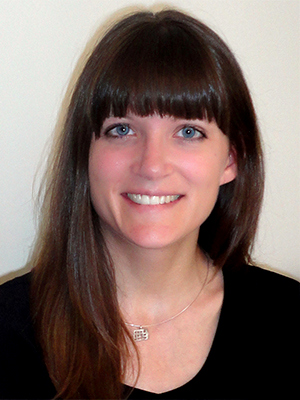Control Seminar
Safe Learning in Robotics
This event is free and open to the publicAdd to Google Calendar

ABSTRACT: To date, robots have been primarily deployed in structured and predictable settings, such as factory floors and warehouses. The next generation of robots — ranging from self-driving and -flying vehicles to robot assistants – is expected to operate alongside humans in complex, unknown and changing environments. This challenges current robot algorithms, which are typically based on our prior knowledge about the robot and its environment. While research has shown that robots are able to learn new skills from experience and adapt to unknown situations, these results have been limited to learning single tasks in simulation or structured lab settings. The next challenge is to enable robot learning in real-world application scenarios. This will require versatile, data-efficient and online learning algorithms that guarantee safety. It will also require to answer the fundamental question of how to design learning architectures for interactive agents.
In this talk I will do two things : First, I will give you an overview of our recent survey paper on Safe Learning in Robotics, which you can find here : https://arxiv.org/abs/2108.06266. Second, I will highlight our recent progress in combining learning methods with formal results from control theory. By combining models with data, our algorithms achieve adaptation to changing conditions during long-term operation, data-efficient multi-robot, multi-task transfer learning, and safe reinforcement learning. We demonstrate our algorithms in vision-based off-road driving and drone flight experiments, as well as on mobile manipulators.
BIO: Angela Schoellig is an Associate Professor at the University of Toronto Institute for Aerospace Studies and a Faculty Member of the Vector Institute. She holds a Canada Research Chair (Tier 2) in Machine Learning for Robotics and Control and a Canada CIFAR Chair in Artificial Intelligence. She is a principal investigator of the NSERC Canadian Robotics Network and the University’s Robotics Institute. She conducts research at the intersection of robotics, controls, and machine learning. Her goal is to enhance the performance, safety, and autonomy of robots by enabling them to learn from past experiments and from each other. She is a recipient of the Robotics: Science and Systems Early Career Spotlight Award (2019), a Sloan Research Fellowship (2017), and an Ontario Early Researcher Award (2017). She is one of MIT Technology Review’s Innovators Under 35 (2017), a Canada Science Leadership Program Fellow (2014), and one of Robohub’s “25 women in robotics you need to know about (2013)”. Her team is the four-time winner of the North-American SAE AutoDrive Challenge. Her PhD at ETH Zurich (2013) was awarded the ETH Medal and the Dimitris N. Chorafas Foundation Award. She holds both an M.Sc. in Engineering Cybernetics from the University of Stuttgart (2008) and an M.Sc. in Engineering Science and Mechanics from the Georgia Institute of Technology (2007).
***Event will take place via Zoom. Zoom link and password will be distributed to the Controls Group e-mail list-serv. To join this list-serv, please send an (empty) email message to [email protected] with the word “subscribe” in the subject line. Zoom information is also available upon request to Katherine Godwin ([email protected]).
 MENU
MENU 
